What Ever Happened to Yearning?
on the death of contemporary romance & the resonance of the past
“Write to me. I need your letters.”
— Anaïs Nin to Henry Miller, from Henry and June: the Unexpurgated Diaries of Anaïs Nin.
Ironically enough I find that I have fallen out of love with romance. Not the idea of it, but how it manifests in literature, which I regard as one of if not the most effective medium for portraying it.
I’ve somehow gotten locked in a sort of literary celibacy. Whereas I used to yearn for romance, used to long for it, I now come up dry of desire; and in tracing back the origins of this drought, I can say that it all started in the middle of last year, when all of a sudden I was hit by this odd sense that romance as a genre was about to enter into a slow, definite death.
The typical person probably wouldn’t think too hard about this, but as is my nature (overanalyzing sometimes to my own detriment), I thought this an interesting line of thought to pursue, also because of two things: (one) I have a feeling I’m not alone in this fatigue, and (two) I suspect that this could mean a shift in how young people view love.
When I was a young girl, I aspired toward an idealized sort of romance, one I knew to be non-existent, but despite that I’d set it as the standard for the sort of relationship I wanted for myself.
When it comes to books, that is probably the first kind of romance that people think of: the kind packaged in a bright, colorful cover, complete with hand-drawn character images, injected with wit and charming banter. For most of my teens, this is the portrayal of love that dominated the book industry as well as my own perception of it. Even now, it dominates; there is no denying that the Emily Henrys and Ali Hazelwoods and Colleen Hoovers (as much as I hate to admit) contributed significantly to skyrocketing the publishing industry to heights never before reached.
These books have catapulted romance and converted hundreds of thousands of people into readers, but as a result the genre has morphed into this commercial monster, sinking its teeth into the industry and bleeding it dry in the name of giving it life.
I’d like to clarify that I have nothing against romance writers (publishers are a different thing). But I do think that there is a chance that they’ve unknowingly fallen into this industrial trap, what with the online-ification and trend-ification of books.
Simply put, love has become commodified, formulaic, and robbed of vigor, at least in the sense of literature. In real life, who am I to say? I babble on and on about love yet happen to be largely inexperienced in it— and that is the very beauty of literature, to place you in the middle of an experience and have it affect you as if it were real life.
But recently, I’ve ceased to experience. I’ve ceased to come back from what I’ve read feeling like a part of me was left in the passages.
So I unintentionally went on a months-long departure from romance, and now, at the end of it, this is what I’ve realized:
I want to read about the sort of love that has teeth. The kind that sinks not into an industry but in the very flesh of experience. I want to read about the sort of love that robs me of my breath and makes my heart stop. I want to read about the ruinous sort of love, the kind that has the ability to give life and take it. I want to read about the mundane, want to hear the whispers of what are otherwise left unsaid, want feel the touch through the page. I want, I yearn to read about love like in the letters of long-dead writers, those declarations of love inlaid with an urgency and passion very rarely replicated in fiction.
Henry Miller writes to Anaïs Nin, “When I see you, all I wanted to say vanishes.” Anaïs writes of him, “And with these words he kisses me and awakens me, I who have been sleeping one hundred years.”
To his then-wife Pablo Neruda writes, “deny me bread, air, / light, spring, / but never your laughter / for I would die.”
Heathcliff speaks of Catherine in Wuthering Heights, “I ought to have sweat blood then, from the anguish of my yearning — from the fervor of my supplications to have but one glimpse!”
And of contemporary literature I’m not surprised that the books which have tugged hard at my heart were those unafraid to narrate a quieter type of romance, which for all it lacked in wit and banter it made up for tenfold in the feeling produced by mere description. The simplified, raw, stripped back nature of such storytelling has the effect of a live choir singing in an empty church. It stuns without having to be dressed up.
Lie with Me achieves that feat. Its titular character thinks, “This feeling of love, it transports me, it makes me happy. At the same time, it consumes me and makes me miserable, the way all impossible loves are miserable.” Such a simple sentence, yet at the time I remember feeling physically hit by it, having to put the book down to process it.
Later the character goes on, recalling a book from his past, “the passage about the desire to merge with his lover will annihilate me.”
And that is exactly the type of effect I’ve grown to expect from romance. To be robbed of breath, to be annihilated.
At first, I hesitated to share my thoughts on this because I suspected that I was the problem. I thought that maybe I’ve grown lazy, grown bored. And in a way I guess I have— romance is both not what it used to be and no longer what I hope for it to embody.
And I have a feeling this boredom will spread almost like sickness among young people, this discontent that will have them seeking other portrayals of love. It’s the same with the death of the rom-com in film; the idealized romance has simply been over-portrayed, and I think we’re near a point that people will be clamoring for something different, something realer (not exactly the best term, but the closest).
But who knows, my forecast may be entirely wrong. Perhaps my taste really has just changed. But either way, I think this conversation is worth stirring. Romance, after all, never ceases to be relevant, whether in literature or anywhere else.


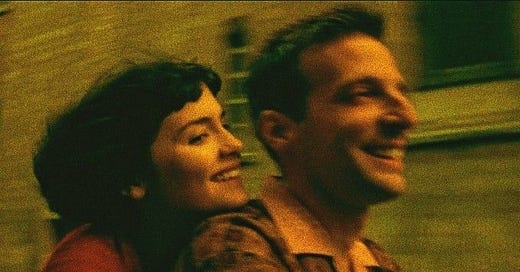


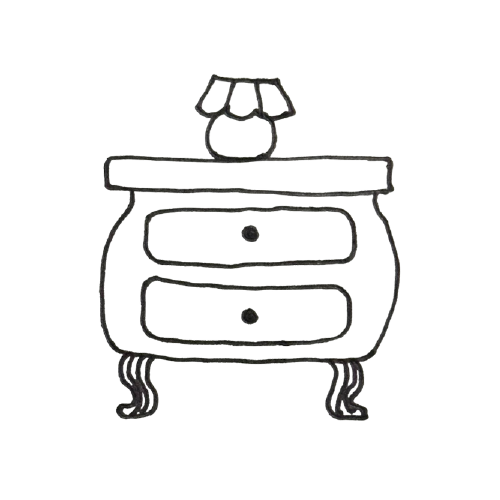
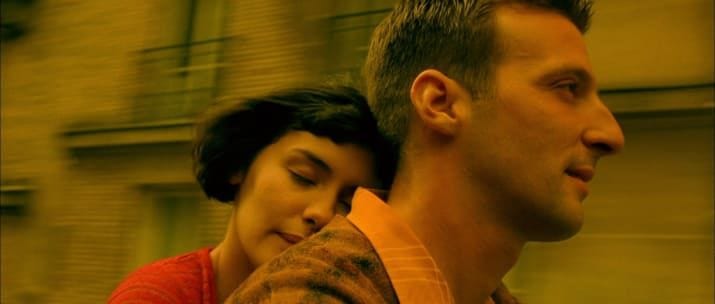
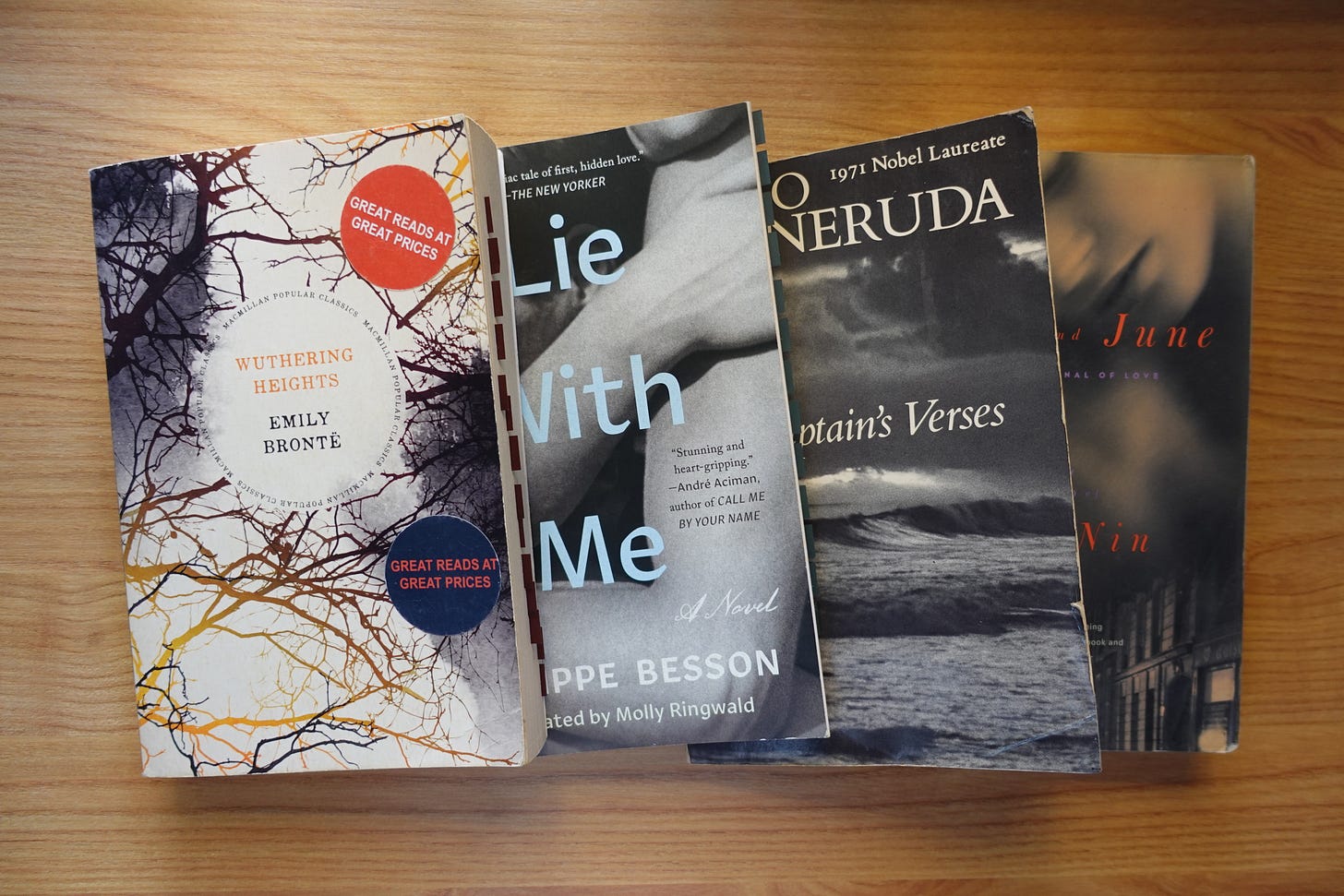
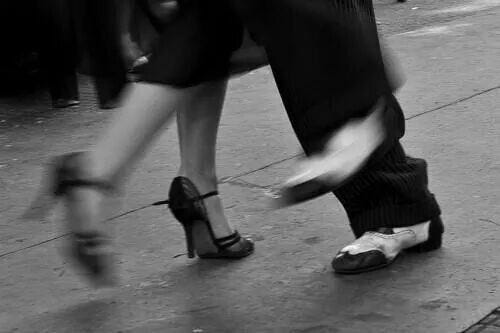
What a beautiful essay! Your writing is poetic in that tortured way, and I love it for its provocative nature (provocative in the emotional sense, because I felt myself experience the same feeling of frustration I often forget about whilst I was reading it).
I absolutely agree. I have also been struggling to read this past year because of the sheer amount of content that there is out there, and sadly, not all of it is entirely good. Romance, in particular, is losing its flame. Every book on the shelf these days is the same small-town romance with an animated cover and a really bad pun as its title. There's nothing wrong with enjoying this format of literary fiction, but it is definitely overused and relentlessly marketed. Since the development of booktok in general, books and particularly romance books have indeed been urged to transform into a formulaic and commodified form of art. Instead of challenging the harmful ideologies society constantly places upon people young and old -- i.e. physical connections being superior to emotional ones-- it promotes them and immortalises them through literature. The stores that I used to turn to for affordable yet interesting stories are filled with the same generic book archetype I mentioned above. As for the stories themselves, they all use the same few tropes in the same way with the same writing approach. It gets tiring! I cannot even think of picking up a book without encountering smut, and it's even worse when it is promoted as a YA novel.
I'm very well aware that I can choose to read other books, but I can't help but grieve for what could have been. Out of the classics I have only really managed to read White Nights and Pride and Prejudice (in terms of romantic themes), but even this glimpse into romantic writers of the past appeals to me much more than what we are spoon-fed today.
I really appreciate your writing about this yearning, because I feel it too. I wish to read a book so devastatingly beautiful that its writing will haunt me for the rest of my life. Circe was definitely one of those books for me. If you haven't read it, I definitely recommend. It's honest, melancholic, and poetry personified (even though it's a literal book, and obviously not a person or poem). I read it for the first time 2 years ago and have made it a tradition to read it every spring. It's sad that as readers we have our unhealthy indulgences normalised, rather than challenged. I wish to find new and unique stories to read, and yet they are never advertised as fervently as what is consumed today. That's it really. (It's not, I think about this every time I look for a new book to read)
Again, I'm so glad I found your page!! Good luck with whatever is next for you:))